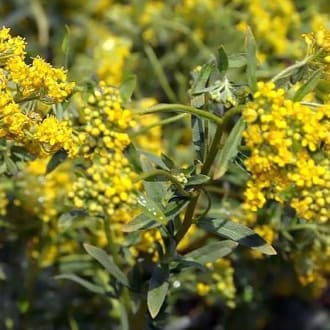
The Best Articles in Nature
The most useful articles and videos in Nature from around the web, curated by thought leaders and our community.
Refind focuses on timeless pieces and updates the list whenever new, must-read articles or videos are discovered.
Top 5 Nature Articles
At a glance: these are the articles that have been most read, shared, and saved in Nature by Refind users in 2024 so far.
Videos
Watch a video to get a quick overview.
4.5 Billion Years in 1 Hour
Learn more about how complex life evolved with our new, elaborately detailed Timeline of Evolution Poster. Available only on the kurzgesagt shop here: https:...
The ‘alpha male’ myth, debunked
Primatologist Frans de Waal inadvertently popularized the term ‘alpha male.’ Now, he’s debunking common stereotypes to explain what an ‘alpha male’ really is...
Transhumanism: Will humans evolve to something smarter?
What does transhumanism mean? What is the definition of transhumanism? Philosopher Julian Baggini explains the radical vision of transhumanism - where humans...
Is Duluth, MN a Climate Change Safe Haven? Michael Kosta Investigates
If climate change soon renders parts of the U.S. uninhabitable, then where are all the coastal elites supposed to go? Michael Kosta takes a trip to Duluth, M...
Requiem for a Whale
After a deceased fin whale washes ashore in Israel, onlookers process its life and death, in a short documentary by Ido Weisman. The story behind the film: https://www.newyorker.com/culture/the-new…
How to ...?
How to Protect Species and Save the Planet—at Once
A major new report calls on humanity to tackle the biodiversity and climate crises simultaneously. Here's what that might look like.
«HUMANITY IS STRUGGLING to contain two compounding crises: skyrocketing global temperatures and plummeting biodiversity. But people tend to tackle each problem on its own»
Trending
These links are currently making the rounds in Nature on Refind.
How Deep Does Life Go?
Geologist James Powell chronicles the evolution of our understanding of life in the deep-sea biosphere.
‘This Will Finish Us’
How Gulf princes, the safari industry, and conservation groups are displacing the Maasai from the last of their Serengeti homeland
These Plants Could Mine Valuable Metals From the Soil With Their Roots
A government agency is funding research into phytomining, in which plants are used to extract valuable metals from the soil through their roots.
There is no "away"
It's a phrase I always grew up with: you throw rubbish and trash "away" and take what you don't need to "the dump" or "the tip." However, a comment in a nature documentary made me reevaluate: "You…
The Surprisingly Long History of the Movement to Make Buildings Safer for Birds
Documenting the birds injured and killed by flying into buildings is difficult, emotionally draining work. One New York City Audubon volunteer looks to the past to find hope for the future.
Short Articles
Short on time? Check out these useful short articles in Nature—all under 10 minutes.
Have we created a society that's too complex to survive?
Homo sapiens evolved as a separate species about 300,000 years ago. Measured in generations (with each generation lasting 20 years), that means there are about 15,000 great-great-etc. grandparents…
There's even plastic in clouds
On the top of Mount Everest, in the Mariana Trench, in the human placenta, and babies’ feces: Plastics are everywhere. They are built to last, and last they do: A plastic bag can endure for 20 years…
The plastic paradox: How plastics went from elephant saviors to eco-villains
It was 1869, and something needed to be done.With the price of ivory skyrocketing, billiard ball manufacturers were scrambling for an alternative. The prized material derived from elephant tusks was…
How crowded are the oceans? New maps show what flew under the radar until now
New maps show how much more crowded the sea is than previously known.
Invisible Landscapes
This essay is a companion piece to an episode of Radiolab, titled The Interstitium. You don’t need to have heard it for this essay to make sense, but
Long Articles
These are some of the most-read long-form articles in Nature.
A Single Small Map Is Enough For A Lifetime
What if this bog-standard corner of England is actually full of adventure, nature, wildness, surprises, silence, perspective — if only I bothered to go out and look?
In Defense of the Rat
Rats are less pestilent and more lovable than we think. Can we learn to live with them?
Genomics Has Revealed An Age Undreamed Of
On June 26, 2000, President Bill Clinton announced the completion of the draft of the human genome at a press conference with the two project leads, Francis Collins and J. Craig Venter. A genome is…
How to rewild yourself
You didn’t evolve to live in this techno-industrialised world. Find health and happiness by embracing your wild nature
One Swedish zoo, seven escaped chimpanzees
The long read: When the great apes at Furuvik Zoo broke free from their enclosure last winter, the keepers faced a terrible choice. This is the story of the most dramatic 72 hours of their lives
Thought Leaders
We monitor hundreds of thought leaders, influencers, and newsletters in Nature, including:
What is Refind?
Every day Refind picks the most relevant links from around the web for you. Picking only a handful of links means focusing on what’s relevant and useful.
How does Refind curate?
It’s a mix of human and algorithmic curation, following a number of steps:
- We monitor 10k+ sources and 1k+ thought leaders on hundreds of topics—publications, blogs, news sites, newsletters, Substack, Medium, Twitter, etc.
- In addition, our users save links from around the web using our Save buttons and our extensions.
- Our algorithm processes 100k+ new links every day and uses external signals to find the most relevant ones, focusing on timeless pieces.
- Our community of active users gets the most relevant links every day, tailored to their interests. They provide feedback via implicit and explicit signals: open, read, listen, share, mark as read, read later, «More/less like this», etc.
- Our algorithm uses these internal signals to refine the selection.
- In addition, we have expert curators who manually curate niche topics.
The result: lists of the best and most useful articles on hundreds of topics.
How does Refind detect «timeless» pieces?
We focus on pieces with long shelf-lives—not news. We determine «timelessness» via a number of metrics, for example, the consumption pattern of links over time.
How many sources does Refind monitor?
We monitor 10k+ content sources on hundreds of topics—publications, blogs, news sites, newsletters, Substack, Medium, Twitter, etc.
Who are the thought leaders in Nature?
We follow dozens of thought leaders in Nature, including National Geographic, grist, George Monbiot, nature, Guardian Environment.
Missing a thought leader? Submit them here
Can I submit a link?
Indirectly, by using Refind and saving links from outside (e.g., via our extensions).
How can I report a problem?
When you’re logged-in, you can flag any link via the «More» (...) menu. You can also report problems via email to hello@refind.com
Who uses Refind?
450k+ smart people start their day with Refind. To learn something new. To get inspired. To move forward. Our apps have a 4.9/5 rating.
Is Refind free?
Yes, it’s free!
How can I sign up?
Head over to our homepage and sign up by email or with your Twitter or Google account.
Keep Learning
Learn something new, guided by experts. Deep Dives are carefully hand-curated series of time-tested articles and videos from around the web.
Get the big picture on your favorite topics.
















